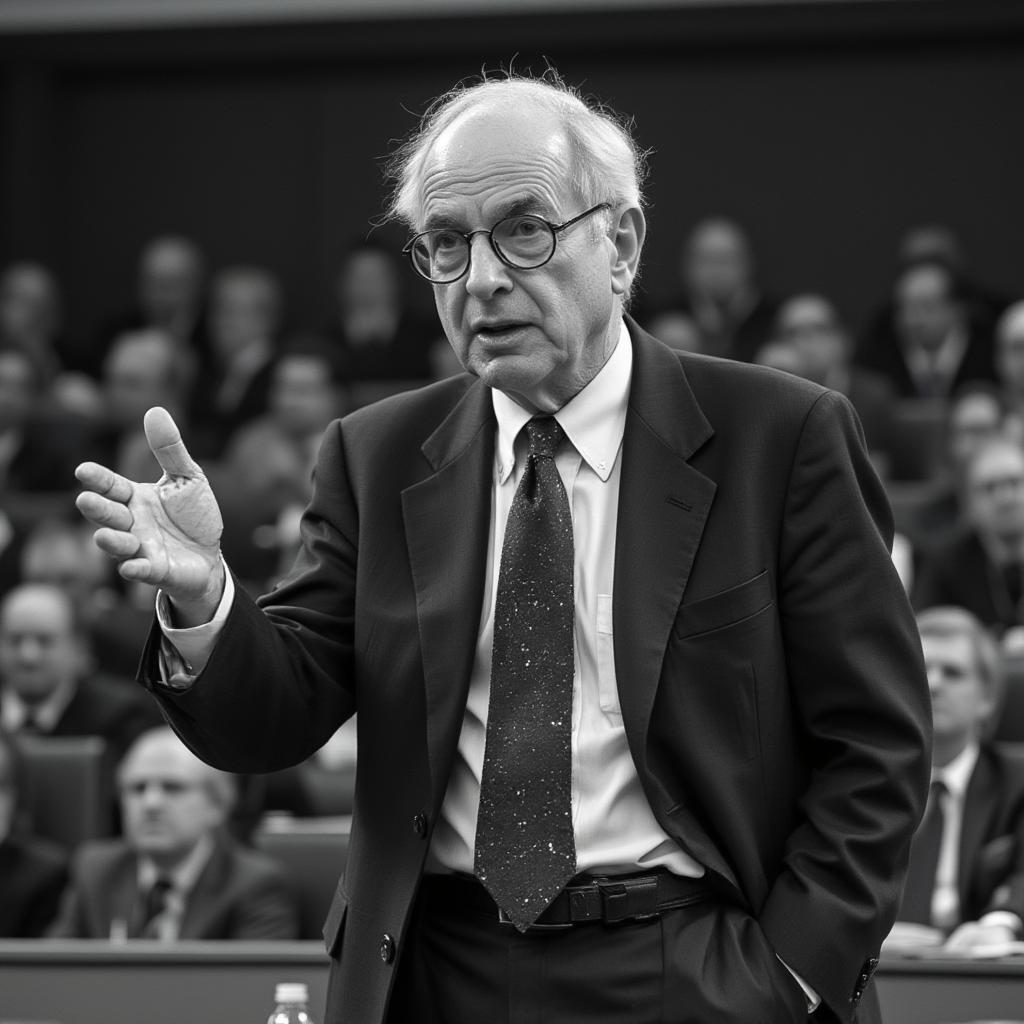Milton Friedman, a name synonymous with free-market economics, profoundly impacted investment thinking in the 20th century. His ideas, often controversial yet undeniably influential, challenged conventional wisdom and reshaped economic policy worldwide. From his academic contributions to his public advocacy, Friedman’s legacy continues to shape how we understand markets, money, and the role of government in the economy. This exploration of his life and achievements sheds light on his transformative influence on investment philosophy.
Born in 1912 in Brooklyn, New York, to immigrant parents, Friedman’s intellectual journey began early. He excelled academically, earning a scholarship to Rutgers University and later completing his doctorate at Columbia University. His early work focused on statistical analysis and consumer behavior, laying the groundwork for his future contributions to monetary economics. During World War II, Friedman worked for the U.S. Treasury, contributing to wartime tax policy. This experience provided him with firsthand insights into the workings of government and its impact on the economy.
After the war, Friedman joined the University of Chicago, where he would spend the next three decades shaping the Chicago School of economics. He became a leading proponent of monetarism, a theory emphasizing the role of money supply in influencing economic activity. This directly challenged the prevailing Keynesian view, which advocated for government intervention to manage demand. Friedman argued that controlling the money supply was a more effective way to stabilize the economy and combat inflation. His seminal work, A Monetary History of the United States, 1867–1960, co-authored with Anna Schwartz, provided compelling evidence for the link between monetary policy and economic fluctuations.
 Milton Friedman's Influence on Monetary Policy
Milton Friedman's Influence on Monetary Policy
Friedman’s influence extended far beyond academia. He became a prominent public intellectual, advocating for free markets and limited government intervention. His bestselling book, Free to Choose, co-authored with his wife, Rose Friedman, popularized his economic philosophy and reached a wide audience. He argued that free markets, driven by individual choice and competition, were the most effective way to allocate resources and promote economic growth. This philosophy had significant implications for investment thinking, emphasizing the importance of market forces and minimizing government interference.
One of Friedman’s key contributions was his emphasis on shareholder value. He argued that the primary responsibility of a corporation is to maximize profits for its shareholders, not to pursue social or political goals. This perspective, while sometimes criticized, fundamentally shifted the focus of corporate governance and investment strategies. It encouraged businesses to prioritize profitability and efficiency, leading to increased shareholder returns and a greater emphasis on market-driven investment decisions.
His work on consumption and the permanent income hypothesis also transformed how economists understand consumer behavior. He argued that individuals base their spending decisions not just on their current income but also on their expected future income. This insight had significant implications for understanding economic cycles and predicting consumer spending patterns. It also influenced investment strategies by providing a deeper understanding of consumer demand and its impact on market trends.
Friedman’s ideas were not without controversy. Critics argued that his emphasis on free markets neglected important social considerations and could exacerbate income inequality. However, his work undeniably sparked important debates and reshaped economic thinking. His influence on monetary policy, deregulation, and the focus on shareholder value is undeniable. He received the Nobel Prize in Economic Sciences in 1976, a testament to his profound impact on the field.
Friedman’s legacy continues to shape investment philosophy today. His emphasis on market forces, limited government intervention, and the importance of shareholder value remains central to many investment strategies. His work provides valuable lessons for investors seeking to understand market dynamics and make informed investment decisions.
FAQ:
- What made Milton Friedman a successful economist? His rigorous analysis, clear communication, and unwavering commitment to his principles propelled him to become a leading voice in economics.
- What are the key takeaways from Friedman’s work? The importance of monetary policy, the benefits of free markets, and the focus on shareholder value are central themes in his work.
- How do Friedman’s ideas apply to today’s market? His insights into market dynamics and the role of government remain relevant in navigating today’s complex economic landscape.
- Which of Milton Friedman’s books is most influential? A Monetary History of the United States and Free to Choose are considered his most influential works.
- How did Milton Friedman influence global economies? His advocacy for free market principles influenced economic policy in numerous countries around the world.


